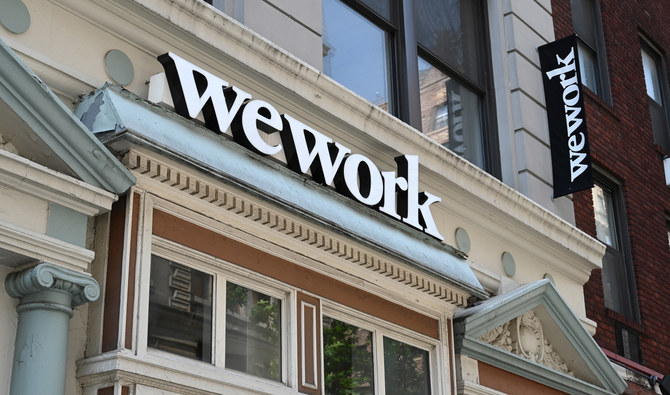
- ARAB NEWS
- 15 Jul 2025

In a few weeks’ time, WeWork, the American workspace company whose mission is “to elevate the world’s consciousness,” will be listed on a US stock market with a multibillion dollar valuation, and a lot of responsibility on its shoulders.
The planned Initial Public Offering (IPO) has already generated plenty of comment and analysis, some of it so negative it is close to the point of abuse. Its business model, ownership structure and valuation have all been criticized after the publication last week of its prospectus for an IPO that could determine the health of global financial markets for the foreseeable future.
The IPO, and the reception it receives, has big ramifications for Saudi Arabia and its preferred investment partner, Masayoshi Son, the guiding force behind SoftBank and the gigantic Vision Fund investment vehicle.
Essentially, WeWork rents out office space in business districts that might otherwise be too expensive for the tech entrepreneurs and startups it sees as its main market. The brainchild of the decidedly cool Adam Neumann, it wants to be seen as the Uber or the Airbnb of the commercial real estate sector.
Neumann found a soulmate in Son and his Vision Fund 1, which is the largest outside investor in the company. In turn, the Public Investment Fund (PIF) of Saudi Arabia is the largest investor in the Vision Fund.
SoftBank and Vision Fund bought into the WeWork mission when they put money into the business at high valuations. They have around $6 billion (SR22.5 billion) invested, just less than half of what WeWork has raised since it was founded in 2010, although they baulked at injecting as much as $10 billion earlier this year. Nonetheless, it is a sizable investment for the Saudi Arabian allies.
“There is a lot riding on the WeWork IPO, for global and regional investors. Good luck wishes are in order.”
Frank Kane
Only time, and the fate of the IPO, will determine whether that investment comes good. Some analysts have found plenty of reasons why it will not.
Critics have pointed to WeWork’s commitment to paying $47 billion in long-term leases as a reason to be wary. Others have highlighted that outside investors will have little say in the running or future director of the company because of the complicated split-voting share structure Neumann is proposing, which gives the CEO and his associates control for the foreseeable future.
What is it about the new breed of entrepreneur that makes it wary of normal shareholder democracy? Mark Zuckerberg of Facebook adopted a similar arrangement of voting and non-voting shares when he took the social media site public. More established visionaries such as Bill Gates of Microsoft never saw the need.
Other skeptics have pointed to the big valuations already placed on entrepreneurial technology stocks — where WeWork likes to see itself — in a market that has hit new highs in recent months, despite worries about the global economic outlook.
Investors will weigh all these factors when the IPO launches on the market. For Saudi Arabia and the UAE, which was also a big investor in the first Vision Fund, there are other considerations to take into account.
SoftBank recently announced a second Vision Fund, even larger than the first with $108 billion pledged, and made it clear it would like PIF and the UAE to be part of that venture before it closes next year. Negotiations are ongoing about the level of commitment from the Gulf in Vision Fund 2.
What would make the Arab investors more likely to put up big money in this fund would be if they received a decent profit on their previous investments. They failed to do so in the IPO of Uber earlier this year, so must be hoping for a better market reception for WeWork.
There are other reasons why investors in the region want WeWork to be a success. Neumann has already opened an office in Abu Dhabi in the Hub71 technology venture in the UAE capital, and is considering other sites in the region.
Vision Fund is committed to bringing some of its portfolio companies to Saudi Arabia as part of the Vision 2030 reform plan to create jobs in the non-oil sector, and WeWork seems to be a natural flagship tenant of any high-tech hub planned for Riyadh.
There is a lot riding on the WeWork IPO, for global and regional investors. Good luck wishes are in order.
Frank Kane is an award-winning business journalist based in Dubai. Twitter: @frankkanedubai